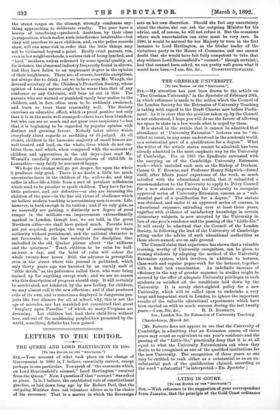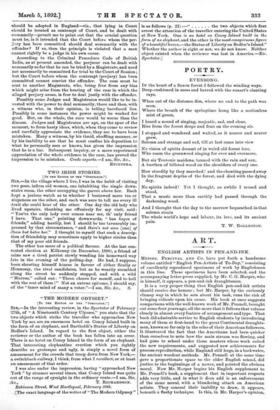LYING IN COURT.
[To Tax aurros ow THA "SPECTATOR."] SIR, With reference to the suggestion of your correspondent from Jamaica, that the principle of the Gold Coast ordinance
should be adopted in England—viz., that lying in Court should be treated as contempt of Court, and be dealt with summarily—permit me to point out that the crucial question must be, is it intended that the Court before whom the per- jury has been committed should deal summarily with the offender? If so, then the principle is violated that a man cannot rightly be a judge in his own cause.
According to the Criminal Procedure Code of British India, as at present amended, the perjurer can be dealt with summarily so far that he can be tried by a Magistrate, and need not necessarily be committed for trial to the Court of Session; but the Court before whom the contempt (perjury) has been committed cannot convict the offender. The case must be sent to another Magistrate, who, being free from any bias which might arise from the hearing of the case in which the alleged perjury arose, is free to deal justly with the offender.
Possibly some Judges and Magistrates would like to be in- vested with the power to deal summarily, there and then, with a witness who, in their opinion, is telling barefaced lies. Possibly in some instances the power might be worked for good. But, on the whole, the cure would be worse than the disease. Judges and Magistrates are apt, on the spur of the moment, to form hasty ideas, which, when they come to review and carefully appreciate the evidence, they see to have been mistaken. Many a witness, by his timid, shuffling manner, or by his inability to see that he must confine his deposition to what he personally sees or knows, has given the impression that he is a liar. Subsequent inquiry, or a more experienced appreciation of the whole evidence in the case, has proved the impression to be mistaken. Crede experto.—I am, Sir, &c.,
ETCETERA.



































 Previous page
Previous page